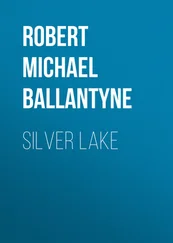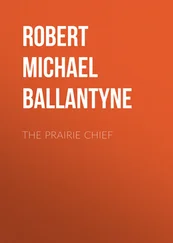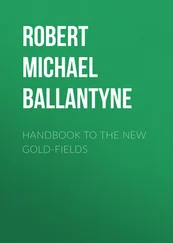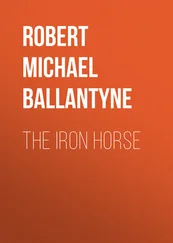Robert Michael Ballantyne - Black Ivory
Здесь есть возможность читать онлайн «Robert Michael Ballantyne - Black Ivory» — ознакомительный отрывок электронной книги совершенно бесплатно, а после прочтения отрывка купить полную версию. В некоторых случаях можно слушать аудио, скачать через торрент в формате fb2 и присутствует краткое содержание. Жанр: foreign_children, literature_19, foreign_antique, foreign_prose, на английском языке. Описание произведения, (предисловие) а так же отзывы посетителей доступны на портале библиотеки ЛибКат.
- Название:Black Ivory
- Автор:
- Жанр:
- Год:неизвестен
- ISBN:нет данных
- Рейтинг книги:5 / 5. Голосов: 1
-
Избранное:Добавить в избранное
- Отзывы:
-
Ваша оценка:
- 100
- 1
- 2
- 3
- 4
- 5
Black Ivory: краткое содержание, описание и аннотация
Предлагаем к чтению аннотацию, описание, краткое содержание или предисловие (зависит от того, что написал сам автор книги «Black Ivory»). Если вы не нашли необходимую информацию о книге — напишите в комментариях, мы постараемся отыскать её.
Black Ivory — читать онлайн ознакомительный отрывок
Ниже представлен текст книги, разбитый по страницам. Система сохранения места последней прочитанной страницы, позволяет с удобством читать онлайн бесплатно книгу «Black Ivory», без необходимости каждый раз заново искать на чём Вы остановились. Поставьте закладку, и сможете в любой момент перейти на страницу, на которой закончили чтение.
Интервал:
Закладка:
“That’s so,” said Disco; “them’s my sentiments ’xactly. Never say die—Stick at nothing—Nail yer colours to the mast: them’s the mottoes that I goes in for—always s’posin’ that you’re in the right.”
“But what if you’re in the wrong, and the colours are nailed?” asked Harold, with a smile.
“W’y then, sir, of course I’d have to tear ’em down.”
“So that perhaps, it would be better not to nail them at all, unless you’re very sure—eh?”
“Oh, of course , sir,” replied Disco, with solemn emphasis. “You don’t suppose, sir, that I would nail ’em to the mast except I was sure, wery sure, that I wos right? But, as you wos a sayin’, sir, about the gittin’ of them ’ere men.”
Disco had an easy way of changing a subject when he felt that he was getting out of his depth.
“Well, to return to that. The fact is, I would not mind the men, for it’s likely that men of some sort will turn up somewhere, but I am very anxious about an interpreter. Without an interpreter we shall get on badly, I fear, for I can only speak French, besides a very little Latin and Greek, none of which languages will avail much among niggers.”
Disco assumed a severely thoughtful expression of countenance.
“That’s true,” he said, placing his right fist argumentatively in his left palm, “and I’m afeard I can’t help you there, sir. If it wos to steer a ship or pull a oar or man the fore-tops’l yard in a gale o’ wind, or anything else in the seafarin’ line, Disco Lillihammer’s your man, but I couldn’t come a furrin’ lingo at no price. I knows nothin’ but my mother tongue,—nevertheless, though I says it that shouldn’t, I does profess to be somewhat of a dab at that. Once upon a time I spent six weeks in Dublin, an’ havin’ a quick ear for moosic, I soon managed to get up a strong dash o’ the brogue; but p’raps that wouldn’t go far with the niggers.”
About two hours after the above conversation, while Harold Seadrift was walking on the beach, he observed his faithful ally in the distance grasping a short thickset man by the arm, and endeavouring to induce him to accompany him, with a degree of energy that fell little short of main force. The man was evidently unwilling.
As the pair drew nearer, Harold overheard Disco’s persuasive voice:– “Come now, Antonio, don’t be a fool; it’s the best service you could enter. Good pay and hard work, and all the grub that’s goin’—what could a man want more? It’s true there’s no grog, but we don’t need that in a climate where you’ve only got to go out in the sun without yer hat an’ you’ll be as good as drunk in ten minutes, any day.”
“No, no, not possibil,” remonstrated the man, whose swarthy visage betrayed a mixture of cunning, fun, and annoyance. He was obviously a half-caste of the lowest type, but with more pretensions to wealth than many of his fellows, inasmuch as he wore, besides his loin-cloth, a white cotton shooting-coat, very much soiled, beneath the tails of which his thin black legs protruded ridiculously.
“Here you are, sir,” cried Disco, as he came up; “here’s the man for lingo: knows the native talkee, as well as Portuguese, English, Arabic, and anything else you like, as far as I know. Antonio’s his name. Come, sir, try him with Greek, or somethin’ o’ that sort!”
Harold had much ado to restrain a smile, but, assuming a grave aspect, he addressed the man in French, while Disco listened with a look of profound respect and admiration.
“W’y, wot’s wrong with ’ee, man,” exclaimed Disco, on observing the blank look of Antonio’s countenance; “don’t ’ee savay that?”
“I thought you understood Portuguese?” said Harold in English.
“So me do,” replied Antonio quickly; “but dat no Portigeese—dat Spanaish, me ’spose.”
“What can you speak, then?” demanded Harold sternly.
“Portigeese, Arbik, Fengleesh, an’ two, tree, four, nigger lungwiches.”
It was very obvious that, whatever Antonio spoke, he spoke nothing correctly, but that was of no importance so long as the man could make himself understood. Harold therefore asked if he would join his party as interpreter, but Antonio shook his head.
“Why not man—why not?” asked Harold impatiently, for he became anxious to secure him, just in proportion as he evinced disinclination to engage.
“Speak up, Antonio, don’t be ashamed; you’ve no need to,” said Disco. “The fact is, sir, Antonio tells me that he has just bin married, an’ he don’t want to leave his wife.”
“Very natural,” observed Harold. “How long is it since you were married?”
“Von veek since I did bought her.”
“Bought her!” exclaimed Disco, with a broad grin; “may I ax wot ye paid for her?”
“Paid!” exclaimed the man, starting and opening his eyes very wide, as if the contemplation of the vast sum were too much for him; “lat me zee—me pay me vife’s pairyints sixteen yard ob cottin clothe, an’ for me’s hut four yard morer.”
“Ye don’t say that?” exclaimed Disco, with an extended grin. “Is she young an’ good-lookin’?”
“Yonge!” replied Antonio; “yis, ver’ yonge; not mush more dan baby, an’ exiquitely bootiful.”
“Then, my good feller,” said Disco, with a laugh, “the sooner you leave her the better. A week is a long time, an’ absence, you know, as the old song says, makes the heart grow fonder; besides, Mr Seadrift will give you enough to buy a dozen wives, if ’ee want ’em.”
“Yes, I’ll pay you well,” said Harold; “that is, if you prove to be a good interpreter.”
Antonio pricked up his ears at this.
“How mush vill ’oo gif?” he asked.
“Well, let me think; I shall probably be away three or four months. What would you say, Antonio, to twenty yards of cotton cloth a month, and a gun into the bargain at the end, if you do your work well?”
The pleased expression of Antonio’s face could not have been greater had he been offered twenty pounds sterling a month. The reader may estimate the value of this magnificent offer when we say that a yard of cotton cloth was at that time sevenpence-halfpenny, so that Antonio’s valuable services were obtained for about 12 shillings, 6 pence a month, and a gun which cost Harold less than twenty shillings in Zanzibar.
We may remark here that Antonio afterwards proved to be a stout, able, willing man, and a faithful servant, although a most arrant coward.
From this time Harold’s difficulties in regard to men vanished. With Antonio’s able assistance nine were procured, stout, young, able-bodied fellows they were, and all more or less naked. Two of these were half-caste brothers, named respectively José and Oliveira; two were half-wild negroes of the Somali tribe named Nakoda and Conda; three were negroes of the Makololo tribe, who had accompanied Dr Livingstone on his journey from the far interior of Africa to the East Coast, and were named respectively Jumbo, Zombo, and Masiko; and finally two, named Songolo and Mabruki, were free negroes of Quillimane. Thus the whole band, including Disco and the leader, formed a goodly company of twelve stout men.
Of course Harold armed them all with guns and knives. Himself and Disco carried Enfield rifles; besides which, Harold took with him a spare rifle of heavy calibre, carrying large balls, mingled with tin to harden them. This latter was intended for large game. Landing near the East Luavo mouth of the Zambesi, our hero was fortunate enough to procure two serviceable canoes, into which he transferred himself, his men, and his goods, and, bidding adieu to the Arab skipper of the dhow, commenced his journey into the interior of Africa.
Chapter Five.
Интервал:
Закладка:
Похожие книги на «Black Ivory»
Представляем Вашему вниманию похожие книги на «Black Ivory» списком для выбора. Мы отобрали схожую по названию и смыслу литературу в надежде предоставить читателям больше вариантов отыскать новые, интересные, ещё непрочитанные произведения.
Обсуждение, отзывы о книге «Black Ivory» и просто собственные мнения читателей. Оставьте ваши комментарии, напишите, что Вы думаете о произведении, его смысле или главных героях. Укажите что конкретно понравилось, а что нет, и почему Вы так считаете.












